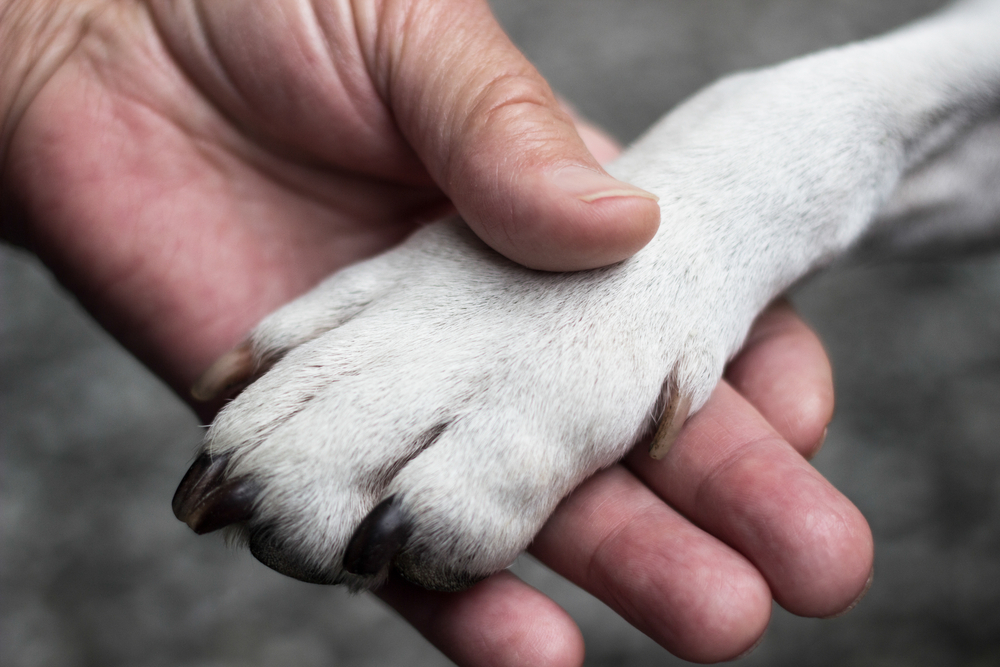Emotional Support Animals Can Provide Comfort for Lupus Patients
Written by |

People tend to think of their animals as part of their family. They provide unconditional love and are there by your side through the good and the bad. That’s just the everyday value that a family pet provides. For those battling lupus, depression can be overwhelming, a feeling of loss of what was once your life. Some have no family support, so getting a service animal can be a way to receive some needed emotional support.
Emotional support animals are not like service animals; while both require a medical professional to assess the patient, they provide very different services. A service animal is actually a trained animal, usually a dog or, interestingly enough, a miniature horse (for those of us who always wanted a pony as kids, here’s your chance). The rule here, however, is for an actual service animal you must be wheelchair-bound, blind or deaf. These animals are trained to do certain tasks and recognize when the person they are caring for is having a medical crisis and be able to assist.
An Emotional Support Animal (ESA) is not a trained animal, but does still require the owner to see a medical professional. These animals are for people who are emotionally or psychologically disabled. So, if you are battling depression, anxieties or PTSD, you could qualify for an ESA.
One of the nice things about these animals is that, unlike a service animal (in most cases a dog), an ESA can be any variety of animal. If you have a current pet and qualify under the specific disabilities that are considered emotional or psychological, and if they provide you the love and companionship you need, you can apply to have them become your ESA. The wonderful thing about this is they are now protected under certain laws that fall within the American with Disabilities Act (ADA). This allows you to take them places that your average family pet cannot go.
 I am not an animal person. However, recently I stayed with a dear friend for a month and she has a dog. On a particularly painful lupus day, her dog would not leave my side. Only when the pain subsided did he finally go back to his “standard routine.” He wouldn’t even go to his owner when called. These animals really do learn to provide comfort when needed and, while I am no dog lover, I actually appreciated the attention that day. This dog, Rusty Bear (pictured with me) has a special place in my heart and showed me the importance of some unconditional love.
I am not an animal person. However, recently I stayed with a dear friend for a month and she has a dog. On a particularly painful lupus day, her dog would not leave my side. Only when the pain subsided did he finally go back to his “standard routine.” He wouldn’t even go to his owner when called. These animals really do learn to provide comfort when needed and, while I am no dog lover, I actually appreciated the attention that day. This dog, Rusty Bear (pictured with me) has a special place in my heart and showed me the importance of some unconditional love.
If you are considering an ESA, speak to your healthcare professional about the requirements. Also make sure to see what the ADA has to say about the protections provided for them as well because there are some protections not afforded to the ESA that are granted to a service animal. Be sure to do your homework.
Note: Lupus News Today is strictly a news and information website about the disease. It does not provide medical advice, diagnosis, or treatment. This content is not intended to be a substitute for professional medical advice, diagnosis, or treatment. Always seek the advice of your physician or other qualified health provider with any questions you may have regarding a medical condition. Never disregard professional medical advice or delay in seeking it because of something you have read on this website. The opinions expressed in this column are not those of Lupus News Today, or its parent company, Bionews Services, and are intended to spark discussion about issues pertaining to lupus.






Tyler
I love this article! Its great to know that the comfort from an animal can alleviate symptoms. If anyone is interested I found an article about the Benefits of an Emotional Support Animal after reading this here: https://www.mypetcerts.com/blog/2016-11-11-benefits-of-an-emotional-support-animal It's a good read, and I ended using their service to obtain my ESA letter. It was simple and I was able to get my ESA letter same day.
Margaret P.
Thank you for taking your time to write this very informative article, Ms. Mcrae. I never knew that lupus - a rare but incurable disease can be mitigated and treated by just having a little Emotional Support Animal nearby. Having an Emotional Support Animal is very beneficial nowadays, but sometimes we need to know how to take care of them and understand them a little too.
Emotional Pet Support is the reason I am living with my Emotional Support Animal today and I highly recommend them.
Kellie McRae
Hi Margaret, thank you for your thoughtful comment. Lupus can't be treated with an emotional support animal but the fallout of having the disease can. When you get a diagnosis such as this, it really does rock your world. You deal with feelings of depression, anxiety and guilt. Having a support animal can help you with the emotions that come with figuring out the rest. They definitely need to be taken care of I saw that with my friends sweet fur baby. I myself am not an animal person but spending time with friends who have animals, I can surely tell you they are intuitive and give love unconditionally. I've had friend with dogs who never take to strangers and if it is a high pain day for me, they are by my side my entire visit. I can see why you'd keep an emotional support fur baby with you :-)
Anonymous
This article contains major errors.
1. Per the ADA Emotional Support Animals, unlike service animals, cannot legally go places that pet dogs are not normally allowed to go.
2. Service animals are not just trained for people who are blind, deaf, or in wheelchairs. The ADA defines service animals as dogs or miniature horses that are trained to do specific tasks to assist individuals with disabilities. There are many disabilities other than the ones listed in the article for which one may use a service animal. For example, a person may use a service animal for PTSD, Diabetes, Lupus, Multiple Sclerosis, Autism, Epilepsy, etc...Any person with a disability may use a service animal, as long as the service animal is trained to do specific tasks to mitigate the disability.
Kellie McRae
Well admittedly, I shared that I am no expert but I did share the link where I obtained my information. Thank you for adding to it, I hope it helps the readers that will come along afterward and as stated, I do advise talking to their healthcare professional and checking with the ADA because if it is like everything else with the government, things are subject to change. :-)
Roger Smith
Nice Post valuable information. Thanks for sharing.
Roger Smith
Dogs have a special bonding with humans from past tens of thousands of years. Many researchers did experiment on this special evolutionary relationship from a several numbers of different angles.